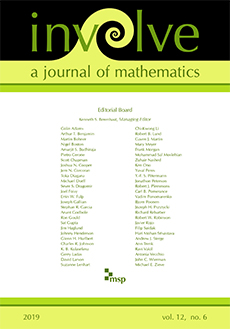Abstract
Estimating the prevalence of a sensitive trait in a population is not a simple task due to the general tendency among survey respondents to answer sensitive questions in a way that is socially desirable. Use of randomized response techniques (RRT) is one of several approaches for reducing the impact of this tendency. However, despite the additional privacy provided by RRT models, some respondents may still provide an untruthful response. We consider the impact of untruthful responding on binary unrelated-question RRT models and observe that even if only a small number of respondents lie, a significant bias may be introduced to the model. We propose a binary unrelated-question model that accounts for those respondents who may respond untruthfully. This adds an extra layer of precaution to the estimation of the sensitive trait and decreases the importance of presurvey respondent training. Our results are validated using a simulation study.
Citation
Amber Young. Sat Gupta. Ryan Parks. "A binary unrelated-question RRT model accounting for untruthful responding." Involve 12 (7) 1163 - 1173, 2019. https://doi.org/10.2140/involve.2019.12.1163
Information





